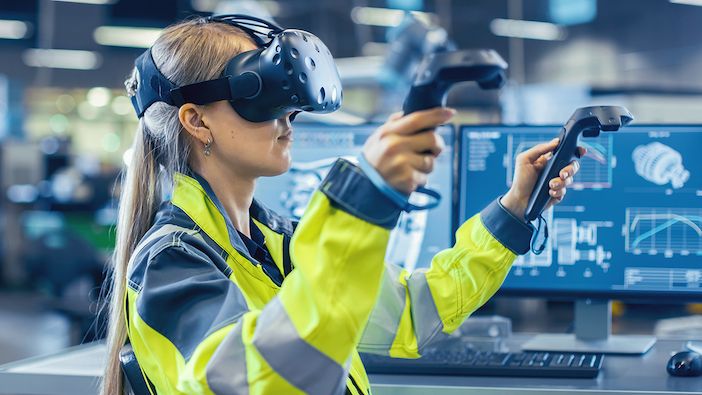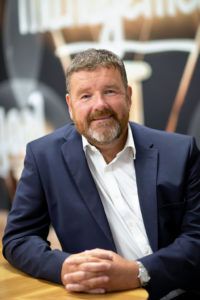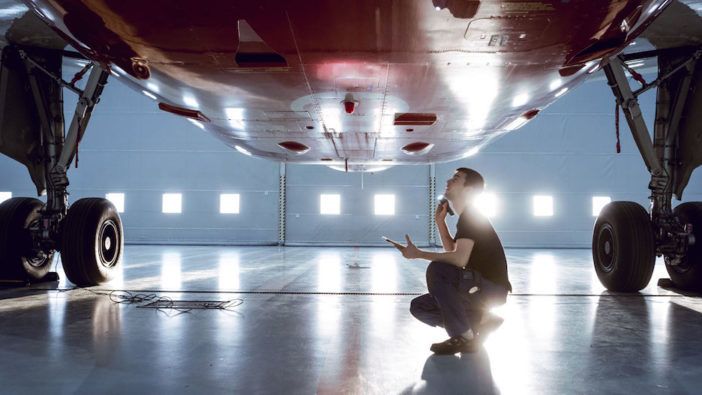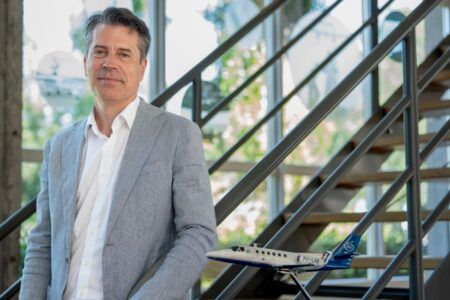Jeff Hoyle, executive vice president of Global Aero, Space and Defence at Expleo and managing director UK and North America, Expleo discusses project management, testing and certification, skills and digitalization in the aerospace sector.
Q: Who are your clients?
A: Airbus is our largest client. We have a fixed and rotary wing division, which works for Dassault Aviation. We have a long-term strategic framework agreement with Spirit AeroSystems. We work with Leonardo.
We also work with Ariane in the space sector and are collaborating with Spaceport Cornwall, looking at the manufacture and design of nanosatellites. In the defense sector we work for Thales globally, as well as some other French defense companies like Nexter.
Our Stirling Dynamics business is focused on high-end complex system integration and flight controls. We also have a business called Aerotec, which is a part 145 and 21 J business. They have a maintenance facility for small jets, and for modifying and customizing helicopters and aircraft.
We also have a large marine division, supporting a major defense client. We have around 500 engineers working on submarines and surface ships on mission critical systems and mechanical design through to designing of the big tools and fixtures.
Q: What type of work do you do?
A: We are very design intensive. When we work with clients we set out to really drive forward the development of products, principally by providing support with manufacturing techniques and processes.
Q: Can you tell me more about Expleo’s capabilities, does it cover aerospace testing and certification?
A: Yes, in different amounts, according to need. For example, for aerodynamics we probably have only 50 engineers, but that’s all we need to meet demand. We match our capabilities to be able to support the lifecycle of a program. We’ve got good mechanical and stress engineers, systems and embedded systems engineers, and avionics engineers.
Q: Do you run your own facilities, workshops and laboratories?
A: We have clean rooms for test benches. At our French facility, which supports Thales we have a workshop where we assemble and manufacture aerospace parts and structures. We also have a facility in which we’ve designed and manufactured fuel cells for the automotive industry. So, we’re not just designing, there is a hands-on element to what we do too.
Q: Can you highlight a recent interesting project for me?
A: There are so many. Maybe a good example is the eXtra Performance Wing project that we are participating in. That project highlights our knowledge rather than just our capability to support product development. We’re also supporting Thales with some of its airport scanning equipment which is really innovative. There’s such variation in our work.
Q: At what project stage would you normally get involved with a project?
A: Our strategy is to build long-term strategic relationships with customers – where it’s not the traditional adversarial master/servant relationship. That means helping at the concept phase, maybe even taking on some risk and making an investment. We want to really buy into the end objective to get a mutual dependency. With these long-term relationships, we can support not only the engineering but also the future development of the next generation of engineers and capabilities.
Clients also come to us when they have a significant problem on a part – they may need to take cost out or weight off. We often remanufacture or reprocess the part with more efficient processes and techniques in these cases.
Q: What does digitalization mean to you?
A: It’s an overused word and a very broad term. If you ask 10 people what digitalization is, you will get 10 different answers. Their response depends on what that person contributes to the business.
You can look at digitalization in terms of a digital thread that runs through the entire lifespan of a part. That’s going to really transform the industry. But it’s a big task because you have to get all the systems talking to each other and today you have multiple systems and processes that don’t make an efficient overall process.
Digitalization in manufacturing can cover the assembly of a part, for example a handler assembling a side skin and frames. We can visualize that using virtual reality to help learn the process, look at the non-conformances and stop them from occurring.
Another, more straightforward part of digitalization could be in services – providing customers with a portal that gives them all the dates they need on the progress of a part.
All these different possible aspects illustrate why digitalization is such a broad term. It’s more than a trend – it’s the way things are.

Q: Did the Covid pandemic change aerospace permanently?
A: It has completely changed people’s expectations of their work-life balance and how they want to work. Companies have had to accelerate the rollout of working from home in secure environments. That’s presented huge challenges when working on commercial or defense projects..
We’ve also got a shortage of people with the right skills who are able to adapt to these different ways of working.
The only way we deal with that is to extensively re-skill engineers. Last year we put 200 engineers through an intensive internal training program to make them digitally aware. We are also working with our customers to bring the next generation of digitally savvy engineers through the business while training them with traditionalists. You can only do that with long-term relationships that allow you to enter into those discussions.
Q: What does your re-skilling program look like?
A: It’s focused on using different technologies. For example, it was common as an engineer to perform large-scale repetitive tasks manually. Robotic process automation (RPA) can shorten development and manufacturing times by removing repetitive and mundane tasks. But engineers need to be aware of the opportunities offered by RPA, how to apply it and be knowledgeable of it. Our re-skilling programs fulfill this need.
Q: How do you deal with the scarcity of materials and parts?
A: We work in a very open and transparent way with our customers, identifying any potential problems up front, planning and developing solutions that often require collaboration. We’re no different to any other company when it comes to shortages in supply chains and rising costs, but we can work together to help solve the challenges these problems bring.
Q: How do you think aviation will change this decade?
A: There are good opportunities with new fuel sources – hydrogen and electrification. There is a lot of talk about eVTOLs. These things are all achievable. But delivering them will be complex. We need to be asking if the network and infrastructure needed to operate eVTOLs, to use hydrogen as a fuel, is achievable. We’ve got lots of ideas and innovations but delivering them in a meaningful way will take longer than five years.
Q: Do you have any advice about how aerospace companies can grow?
A: Any company that wants to grow and diversify needs to embrace technological advancement and digitalization. But they are enablers. You still need core engineering knowledge and skills to build viable products and businesses.

Jeff Hoyle CV
Jeff started his career as an electrical engineer with British Aerospace before moving to roles with Marshalls and Ricardo. He later progressed to his first Executive positions with INBIS and Assystem.
In 2019, Jeff was appointed to the role of UK managing director at Expleo, and in 2020 he combined his UK responsibilities with the role of EVP Global Aero, Space and Defence for the company.
Today, Jeff leads a UK business of around 1,700 people to work in partnership with organizations, guiding them through business transformation and helping them to achieve engineering and operational excellence.
Jeff is a proactive advocate of upskilling engineers to ensure they have the capabilities needed for industry 4.0. He also supports several UK organizations working in engineering and technology to drive greater diversity and inclusion in the sector.





